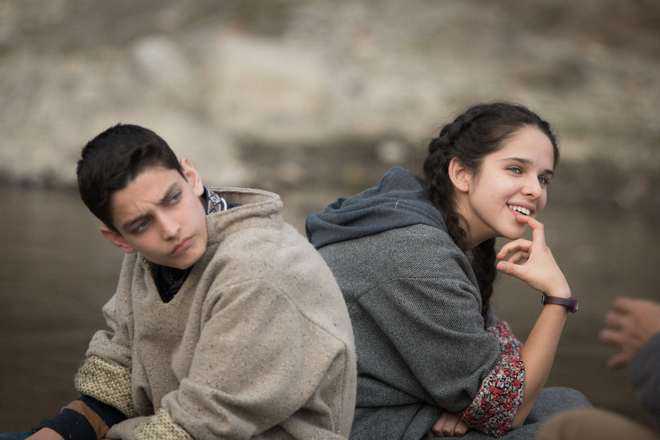
A still from No Fathers in Kashmir by Ashvin Kumar
Saibal Chatterjee
Ashvin Kumar, the only Indian filmmaker to be nominated for an Oscar in the short fiction category (for Little Terrorist in 2005), has had several bruising run-ins with the Central Board of Film Certification (CBFC). The latest one — over his second narrative feature, No Fathers in Kashmir, which the writer-director has described as “a story of hope and forgiveness against the backdrop of unrest” — has put the release of the crowd-funded independent film in jeopardy.
“I plan to release the film in February 2019, but I can make no commitments to the distributors and exhibitors until we have the censor certificate in hand,” says Ashvin.
“The whole censorship system is stacked up against the individual. It is time to scrap the façade and replace it with a filmmaker-friendly structure.”
But is anybody listening? The filmmaker has written an open letter to CBFC chief Prasoon Joshi with a plea that No Fathers in Kashmir be allowed to release without any cuts and with a U certificate, but has received no formal response. Ashvin insists that he wants No Fathers in Kashmir to play commercially in India before the film begins the rounds of international festivals. “It is for Indian audiences that this film is primarily meant,” he adds. “But as things stand, I have no idea when I can show the film here.”
“No Fathers in Kashmir was in the making for five years. The past six to eight months have been excruciating. I applied to the censors in July. The year is ending and I am still waiting.”
Two screenings over a period of three months — one before the CBFC examining committee, the other for a review committee — have already set Ashvin back by Rs 2,00,000. An FCAT (Film Certification Appellate Tribunal) screening — he still hasn’t got a date — will cost him another Rs 2,00,000.
“The CBFC committees did not give me an opportunity to make a presentation. They just issued a diktat. Their objections to the film are so frivolous that it is only a ploy not to take a decision and pass the buck to another body,” says Ashvin.
Ashvin, who is seeking ‘U’ classification for No Fathers in Kashmir has appealed to the FCAT to overturn the CBFC ruling. In his open letter to Prasoon Joshi, he has written: “No Fathers in Kashmir is a coming-of-age story of two 16-year-olds experiencing first love and heartbreak but in the worldview of the CBFC 16-year-old Indians are not allowed to watch it. The film has no sex, no violence, no vulgarity, no nudity, no drug abuse….”
Ashvin’s argument against an ‘A’ certificate rests on the argument that a small independent film like his does not rely solely on theatrical revenues. A large chunk of its income comes from broadcast rights, which, under present laws, an ‘adults only’ film cannot access.
Ashvin has, of course, been in such a spot before but the stakes are much higher this time around. In 2010, his documentary feature Inshallah, Football, about a young Kashmiri footballer who is refused permission to travel abroad because his father was a Hizbul Mujahideen militant in the 1990s, was denied a censor certificate. After a protest, it got an ‘A’ certificate and then went on to win a National Award the following year. History repeated itself in 2011 with his next documentary Inshallah, Kashmir, a film that looked at the history of contemporary Kashmir to understand various facets of the ongoing conflict. It was banned, and then given an ‘A’ certificate. It also bagged a National Award. Amid it all, Ashvin released the film online to great acclaim.
“Inshallah, Kashmir is a documentary, so an online release was viable,” says Ashvin. No Fathers in Kashmir, he says, is a feature film and so it is a different game altogether. A lot of money is riding on it and a lot a people have to be paid, he points out. “Each day of delay only increases the financial load on me,” he says. “Through this uncertainty, I have to keep the staff on salaries, who wait around for the work of marketing and distribution to commence. I risk losing all of them,” he adds.
That apart, he asserts, it is such a waste of time discussing things that are superfluous. “I’d rather be talking about the film and its content,” he says.



























